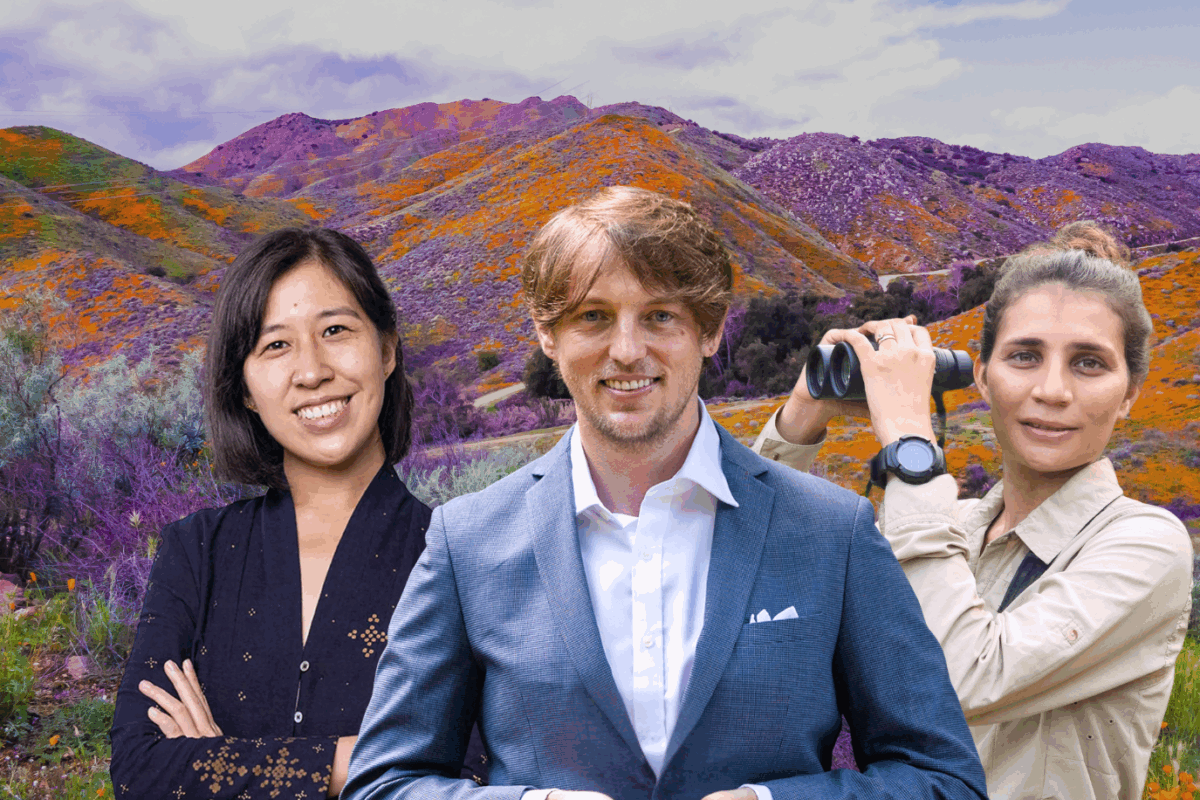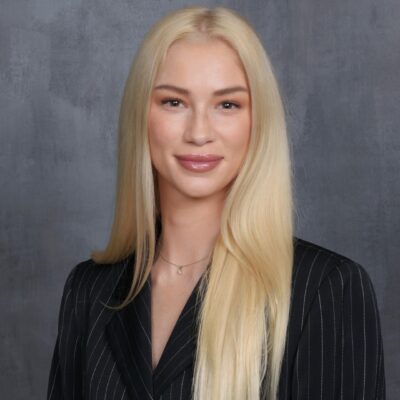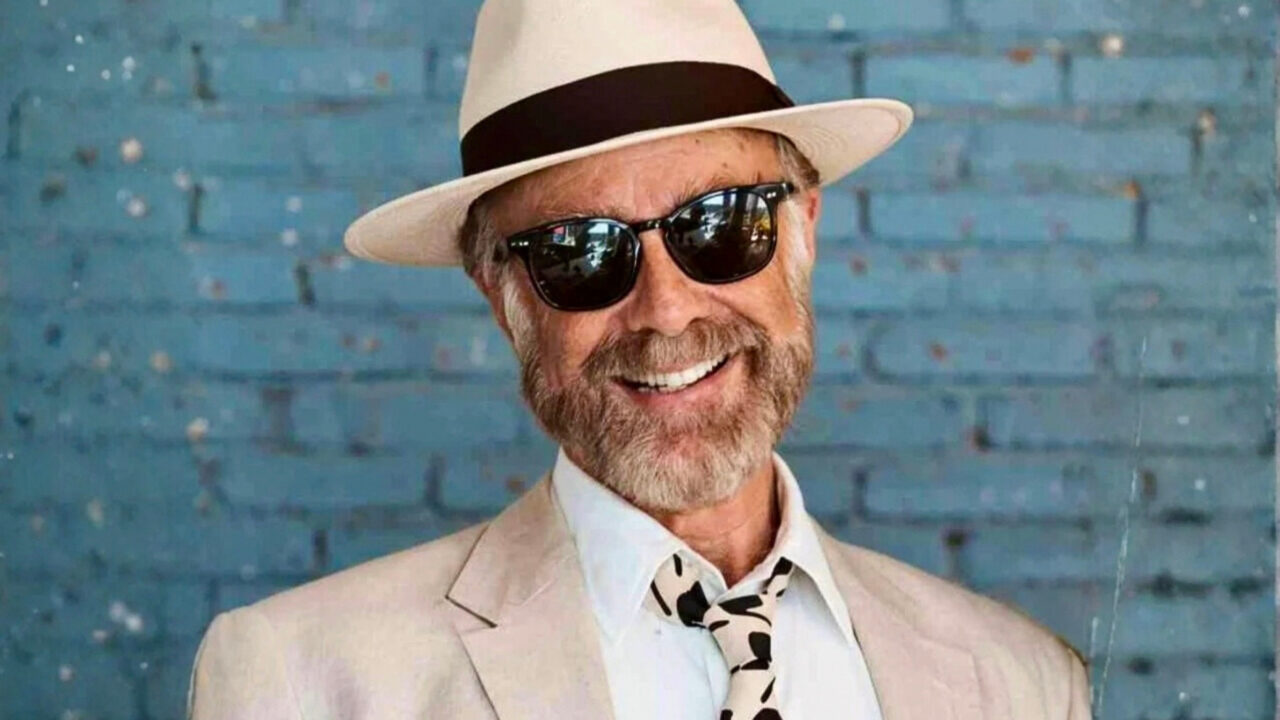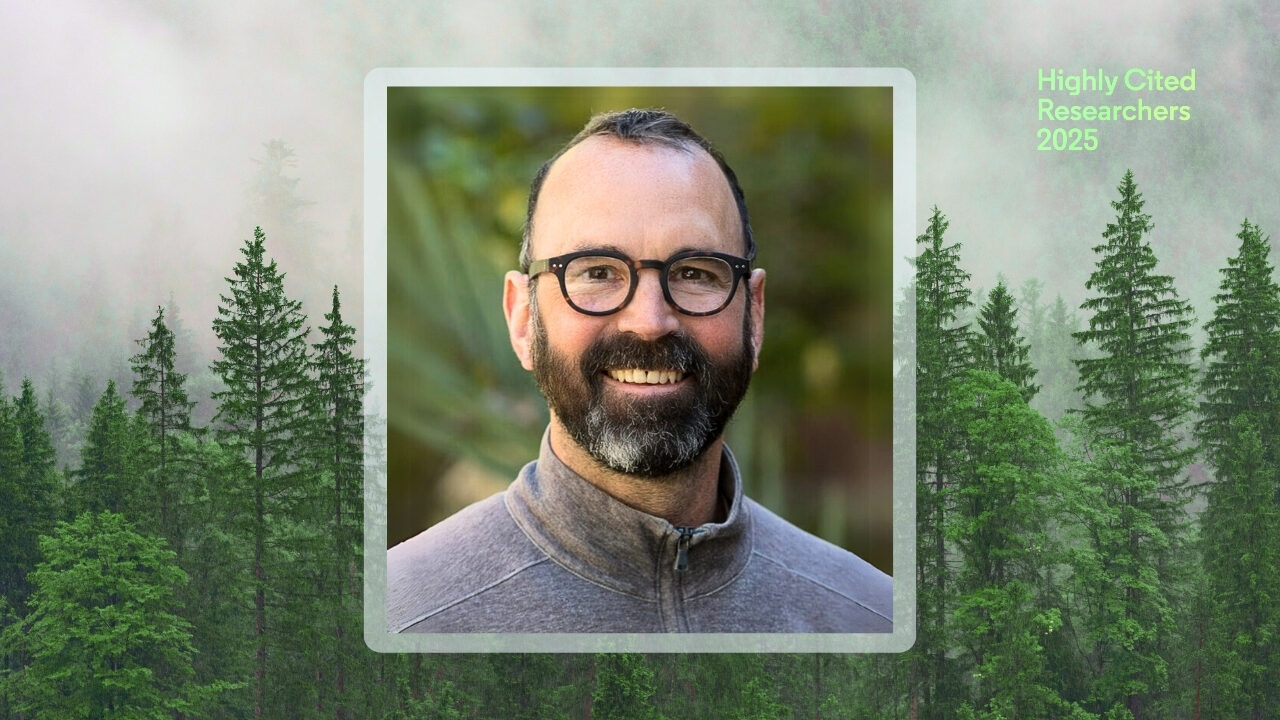
2025 Pritzker Award finalists: Anthony Waddle, Denica Riadini-Flesch, Seema Lokhandwala
Three innovators from Australia, Indonesia and India are redefining how to protect wildlife, restore ecosystems and build equitable futures
UCLA Institute of the Environment and Sustainability is proud to announce the three finalists for the 2025 Pritzker Emerging Environmental Genius Award, selected by a panel of seven environmental experts.
One of the most prestigious environmental honors, the award is the first major U.S. prize built to elevate the next generation of climate and conservation leaders. It recognizes those whose work weds measurable results to original thinking, and whose solutions are built to last.
All under age 40, this year’s finalists reflect a broader shift in environmental leadership — away from siloed expertise and toward solutions that are interdisciplinary, locally grounded and designed for the long term. Their work spans continents and cultures, but is united by a refusal to treat complex problems as inevitable.
Anthony Waddle is helping Australia’s green and golden bell frog, once near extinction, survive in numbers not seen in decades. Only a few years ago, the species teetered under the weight of chytrid fungus — a pathogen responsible for more documented extinctions globally than any other disease. Waddle has been central to their rebound, advancing both the science and practice of amphibian conservation.
A Schmidt Science Fellow at Macquarie University, he leads efforts ranging from captive breeding and vaccination trials to “frog saunas” — small greenhouses with heat-retaining bricks that give amphibians warm microhabitats and disrupt the fungus’s life cycle. These interventions have already shifted the population trajectory, with survival rates and breeding activity climbing. In partnership with the New South Wales government and local conservation groups, vaccinated bell frogs are now more than twice as likely to survive each year, and their population has nearly tripled since the program began.
At the same time, Waddle is pursuing long-term solutions through synthetic biology, aiming to introduce heritable resistance into vulnerable species. Despite the pace of his career — he earned his PhD in 2022 — Waddle is already influencing how the field thinks about amphibian disease.
“A major barrier in my area is the presence of defeatist attitudes from leading figures in chytrid research who have declared the challenge hopeless and called for giving up,” he said. Instead, he treats each success, however small, as proof that persistence matters.
Denica Riadini-Flesch is rebuilding the fashion supply chain to restore ecosystems, revive cultural heritage and place women at the center of climate solutions. Through her social enterprise SukkhaCitta, the Indonesian economist turns the “farm to closet” concept into a living network that begins in the soil.
Working with smallholder farmers to incorporate heirloom cotton and plant-based dyes, she has helped regenerate over 120 acres of degraded land and prevented nearly 5 million liters of hazardous dye wastewater from entering waterways. Her decentralized craft schools teach rural women heritage techniques alongside entrepreneurship and ecological literacy, raising incomes by 60% on average. This positions women as decision-makers in land use planning and as stewards of sustainable farming in their regions.
“Our current economy runs on the logic of the line: extract, produce, discard,” she says. “We’re rewriting that story — by returning to the wisdom of nature, where nothing is wasted and everything is connected.”
The reach extends well beyond the villages. Direct-to-consumer sales and collaborations with global cultural figures — from Yo-Yo Ma to Jane Goodall — connect these textiles to buyers who value both their beauty and their environmental impact. By 2050, Riadini-Flesch aims to regenerate 2.5 million acres of Indonesian land and create sustainable livelihoods for 10,000 rural women, with knowledge shared globally through three flagship “Rumah SukkhaCitta” hubs and an open-access app.
Seema Lokhandwala is working to prevent deadly encounters between people and elephants in Northeast India, where migration routes cut through villages. The engineer-turned-conservation scientist founded the Elephant Acoustics Project to answer a deceptively simple question: how can communities and the herds that pass through them live side by side without fear, injury or loss?
Her approach blends bioacoustics, behavioral ecology and local knowledge. By recording and analyzing the low-frequency calls elephants use to communicate — sounds that carry for miles — her team built India’s first database of Asian elephant vocalizations. From this, she developed detection systems that alert villages when herds are near, redirecting them with recorded predator calls.
In one village where two fatal encounters had shaken residents, Lokhandwala’s acoustic detection network was deployed, giving advance warning of approaching herds, allowing people to clear paths and secure homes in case herds came through. In a separate case, her intervention spared an elephant named Ganesh from translocation or captivity; instead, a GPS collar enabled noninvasive tracking that let field teams anticipate his movements and redirect him away from settlements.
In a country where more than 500 people and 100 elephants die in conflict each year, Lokhandwala’s work is essential to reducing fatalities. Her work also helps maintain the genetic diversity and ecological role of wild elephant populations while preserving India’s centuries-old ethos of coexistence. She hopes to “foster a holistic model of conservation — one where communities are empowered as both innovators and custodians of their natural and cultural legacy.”
The Pritzker Emerging Environmental Genius Award, which carries a $100,000 cash prize, elevates changemakers early in their careers, often before major accolades.
The finalists, selected from 13 candidates, will next be presented to a panel of judges: Abel Valenzuela, Jr., dean of social sciences at UCLA; Ah-Hyung “Alissa” Park, dean of UCLA’s Samueli School of Engineering; Jeanne Holm, deputy mayor for finance and innovation for the City of Los Angeles; Andrew Steer, former CEO of the Bezos Earth Fund; and Anastasia Loukaitou-Sideris, dean of UCLA’s Luskin School of Public Affairs.
The winner will be announced during an October 8 ceremony at UCLA.




